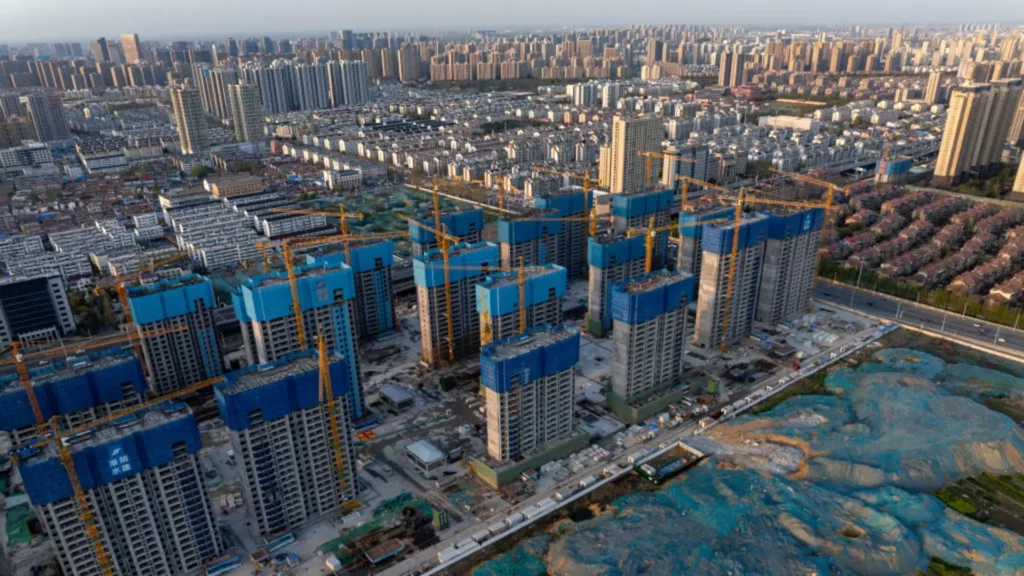![]()
China’s economy has been facing some significant challenges, with one of the key areas of concern being the real estate market. Richard Koo, chief economist at Nomura Research Institute, highlighted the importance of convincing people that home prices are on the rise in order to stimulate economic activity. However, recent data shows that home prices have been dropping, raising concerns about a potential “balance sheet recession.” This situation is reminiscent of the economic struggles that Japan faced during its own slump, indicating the seriousness of the issue at hand. The question remains whether China has reached the bottom in terms of home prices, and until a clear upward trend is established, businesses and consumers may remain hesitant to take on new loans.
To counter the challenges in the real estate market, Chinese officials have been emphasizing the development of new growth drivers such as manufacturing and new energy vehicles. These sectors have the potential to diversify the economy and reduce the heavy reliance on the property market. It’s worth noting that real estate and related sectors have played a significant role in China’s economy, with some estimates suggesting that they account for at least one-fifth of the country’s GDP. However, the recent slump in the property market, triggered by a crackdown on debt among developers in 2020 and the impact of the Covid-19 pandemic, has necessitated a shift in focus towards other areas of growth.
In light of the economic challenges, China’s government has set a growth target of around 5% for 2024. Achieving this goal, however, may require additional stimulus measures. Past experiences with stimulus packages have been mixed, with Koo highlighting the potential risks associated with excessive government intervention. The 4 trillion yuan stimulus package launched in response to the global financial crisis faced criticism initially but ultimately led to a significant increase in growth. However, sustaining this level of growth proved challenging and resulted in overheating of the economy and speculation. As a result, Chinese authorities are now more cautious about implementing large-scale stimulus programs, fearing a repeat of past mistakes.
Looking ahead, Koo recommends that China should stimulate its economy to avoid a balance sheet recession, but also stresses the importance of scaling back this support once growth reaches sustainable levels. This delicate balance between promoting growth and preventing overheating remains a key challenge for Chinese policymakers. The emphasis on developing new growth drivers and reducing reliance on the real estate market is a step in the right direction. As China navigates through these economic uncertainties, it will be crucial for the government to strike a balance between stimulating economic activity and ensuring long-term sustainability. The road ahead may be uncertain, but with strategic planning and prudent policies, China can overcome the current challenges and build a more resilient economy for the future.

Leave a Reply